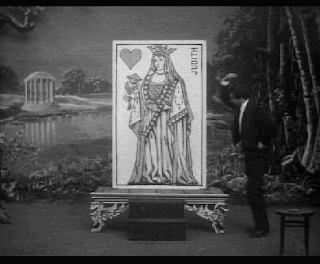Not the Gandhi who called for seas of innocent blood, you understand, but the movie-Gandhi, the nice one.
by Richard Greiner
I had the singular honor of attending an early private screening of 'Gandhi' with an audience of invited guests from
the National Council of Churches. At the end of the three-hour movie there was
hardly, as they say, a dry eye in the house. When the lights came up I fell
into conversation with a young woman who observed, reverently, that Gandhi’s
last words were “Oh, God,” causing me to remark regretfully that the real
Gandhi had not spoken in English, but had cried, Hai Rama! (“Oh, Rama”). Well, Rama was just Indian
for God, she replied, at which I felt compelled to explain that, alas, Rama,
collectively with his three half-brothers, represented the seventh
reincarnation of Vishnu. The young woman, who seemed to have been under the
impression that Hinduism was Christianity under another name, sensed somehow
that she had fallen on an uncongenial spirit, and the conversation ended.
At a dinner party shortly afterward, a friend of mine, who had visited
India many times and even gone to the trouble of learning Hindi, objected
strenuously that the picture of Gandhi that emerges in the movie is grossly
inaccurate, omitting, as one of many examples, that when Gandhi’s wife lay
dying of pneumonia and British doctors insisted that a shot of penicillin would
save her, Gandhi refused to have this alien medicine injected in her body and
simply let her die. (It must be noted that when Gandhi contracted malaria
shortly afterward he accepted for himself the alien medicine quinine, and that
when he had appendicitis he allowed British doctors to perform on him the alien
outrage of an appendectomy.) All of this produced a wistful mooing from an editor
of a major newspaper and a recalcitrant, “But still. . . .” I would prefer to
explicate things more substantial than a wistful mooing, but there is little
doubt it meant the editor in question felt that even if the real Mohandas K.
Gandhi had been different from the Gandhi of the movie it would have been nice if he had been like the movie-Gandhi, and
that presenting him in this admittedly false manner was beautiful, stirring,
and perhaps socially beneficial.
An important step in the canonization of this movie-Gandhi was taken by the
New York Film Critics Circle, which not only awarded the picture its prize as
best film of 1982, but awarded Ben Kingsley, who played Gandhi (a remarkably
good performance), its prize as best actor of the year. But I cannot believe
for one second that these awards were made independently of the film’s
content—which, not to put too fine a point on it, is an all-out appeal for
pacifism—or in anything but the most shameful ignorance of the historical
Gandhi.






.jpg)









.jpg)
.jpg)















